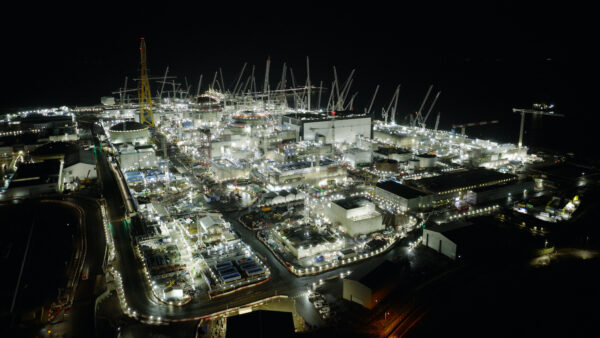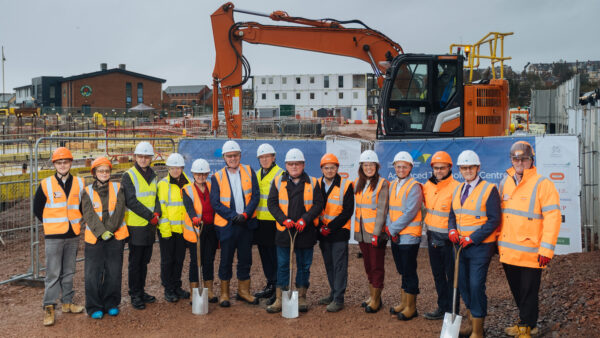
One of the world’s largest hybrid 3D printing machines, capable of producing large parts and structures for construction projects, has gone live.
The Large Additive Subtractive Integrated Modular Machine (LASIMM), which has been developed in Spain, is the first of its kind and features unique metal additive and subtractive capabilities.
The European Union’s Horizon 2020 research and innovation programme has funded ten partners, including Autodesk, universities, research institutions and other technology providers, to produce a machine that can manufacture components for the most demanding industries, all directly from CAD models.
The machine will now be tested to manufacture demonstrator parts. It can undertake additive manufacturing, machining, cold-work, metrology and inspection.
Its developers claim it will 20% reduction in time and cost expenditure over more traditional hybrid manufacturing of large engineering parts, as well as a 15% increase in productivity for high-volume additive manufacturing production.
The machine includes a modular configuration of industrial robot arms and a specialised milling robot – the first for additive manufacturing of aluminum and steel, and the second for machining away surplus material to provide the final finish. The developers say this process will enable entire large-scale industries to move away from standardised components and towards bespoke solutions for industries such as aerospace, renewables, energy, transport, construction and many more.
“Significant impact”
Eurico Assuncao, deputy director at European Federation for Welding, Joining and Cutting and the LASIMM project coordinator said: “While 3D printing for consumers and makers has received a great deal of publicity, it is within the industrial manufacturing and construction industries that this technology could have its most significant and lasting impact. Its use has now reached a tipping point and this technological achievement will pave the way to enable entire construction infrastructures to be 3D printed in the future. At the EWF, we are hard at work to ensure these advanced equipments are handled by adequately trained and qualified professionals. We are thrilled to be part of this unique project.”
Johnny van der Zwaag, project manager research and innovation projects at Autodes, the project’s lead software partner, said: “For Europe’s future industrial competitiveness, the LASIMM project represents a mighty leap forward for hybrid manufacturing and will enable many countries to produce far larger materials, both more quickly and cost effectively. The project has brought hybrid manufacturing to a truly global and industrial scale. To date, 3D printing has been limited to smaller components and is often seen as an expensive option. But the technology, both software and hardware that has been implemented within this project, shows that it is now ready for bigger things. We’re delighted to be part of it and to have the opportunity to show the world what’s possible.”










